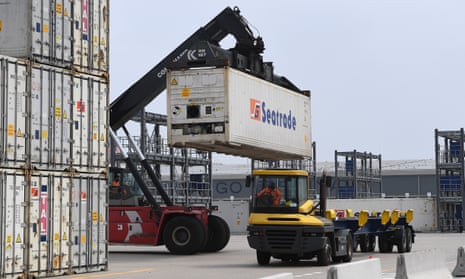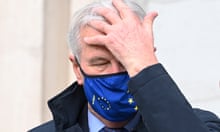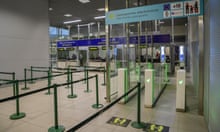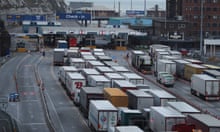What has Boris Johnson said?
The prime minister claimed that due to the stubborn intransigence of the EU he had to conclude that the “Canada-style” trade deal that he was seeking was not going to be successfully negotiated without a “fundamental” change in Brussels’ negotiating position. He said it was therefore important that business prepare to trade with the EU on the basis of “arrangements that are more like Australia’s, based on simple principles of global free trade”.
What is a Canada-style trade deal?
The EU has a trade deal with Canada called the comprehensive economic and trade agreement (Ceta). It is the type of arrangement that Michel Barnier said four years ago would be possible at the start of the Brexit talks if the UK wished to leave the single market and customs union.
There would be checks on imports and exports and a great deal more red tape for businesses as the UK would be outside the EU rule book. But such a deal does involve reducing tariffs, or taxes, on imports and quotas – the amount of a product that can be exported without extra charges.
What the UK and EU have been attempting to negotiate is something more than that enjoyed by Canada, however. Both sides say they want a “zero tariff, zero quota” agreement by the end of the year.
The Ceta deal gets close to doing that – 98% of products are tariff-free, but they do remain on poultry, meat and eggs, for example. Quotas also remain on some goods.
“If they actually wanted a Canada-style deal they should have extended the transition period and then we could have gone through all the products and put tariffs and quotas in place in return for lower demands on maintaining EU standards,” said one exasperated EU official.
Why does Boris Johnson say this is now off the table?
Because Downing Street says the EU is offering less generous terms than are included in the Ceta deal. There are various examples including the length of stay for short-term business visitors and the lack of sector-specific provisions for key industries with particular technical barriers such as motor vehicles, medicinal products, organics and chemicals.
The UK rightly says the demands on level playing field provisions also go beyond anything contained in the Ceta deal. These include non-regression from EU standards, with the raising of that baseline together over time, and a UK commitment to follow the bloc’s state aid, or domestic subsidy, rules. The EU has said the sheer level of trade between the UK and the EU means it needs to be vigilant in maintaining fair competition. It has also watered down its original demands on standards and state aid, but not enough, as far as Downing Street is concerned.
What are Australia-style arrangements?
Downing Street started using the term at the beginning of the year as a more palatable shorthand for a no-deal. The EU does not have a free-trade deal with Australia, although they are in negotiations. The two sides operate mainly on World Trade Organization (WTO) rules, with huge tariffs on imports and exports.
It would be more accurate to describe the outcome that would be secured by a no-deal as an Afghanistan-style arrangement, given the lack of formal cooperation in that trading relationship. This is because the EU does have a few agreements in place with Australia that it would not have with the UK in the event of a failure of the trade and security negotiations. These include an agreement on the transfer of EU passenger name records to Australian border authorities to help combat crime and terrorism and an agreement on the mutual recognition of conformity assessments, so that a product tested to EU standards in Australia is regarded as compliant, eliminating the need for duplicative testing when it is imported.









